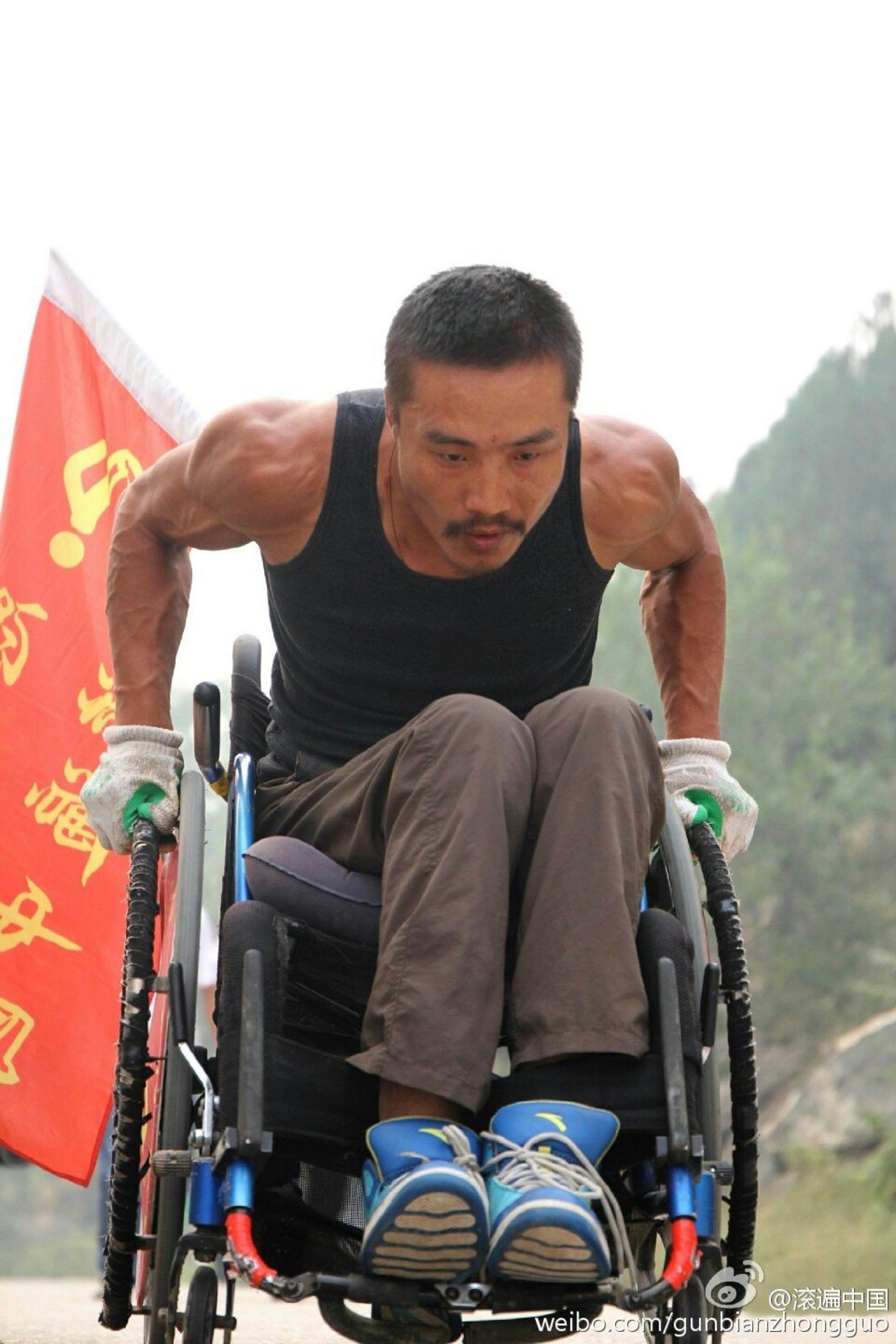Story highlights
Paraplegic man travels across China by wheelchair
He wants to show that disabled people aren't "useless"
His trip has highlighted challenges faced by wheelchair users in China
A 29-year-old paraplegic man is traveling more than 3,500 miles (5,670 kilometers) across China – by wheelchair.
Quan Peng, from Gansu province in western China, set off from Beijing in August 2014 and has visited 43 cities and towns in five provinces. In the next six months, he hopes to make it to China’s southern tip – his final destination.
The goal of his epic journey? He wants people with physical challenges like him to be treated like anybody else.
“I see it as a battle,” Quan told CNN. “I’m not only battling against my disability, but against discrimination.”
Quan has traveled on a shoestring budget. He’s wheeled himself all of the way so far – and has the bulging biceps to prove it.
He’s slept in a tent or in his chair with only the shelter of an umbrella, and camped out in hospitals, banks and public toilets.
The few times he tried to stay in hotels he was turned away.
“Restaurant owners would refuse to take me in because they see me as a beggar; I go to a hotel, they would tell me they are fully booked.”
Forced to crawl
China has 85 million people with disabilities, according to the most recent figures from the China Disabled Persons’ Federation.
Although the country has tried to improve access by installing wheelchair ramps and disabled restrooms in bigger cities like Beijing, barriers persist and many are discriminated against in the workplace and in education.
Quan moved to Beijing in 2013, where he found a job in customer service.
He quit a year later to start his cross-country trip, reviewing disabled facilities in cities and towns, also visiting museums hoping to learn about different places.
He initially thought his journey would take nine months but at 566 days and counting, it’ll likely take more than two years.
“The battle against disability includes my own physical condition and the barriers out there.”
His biggest challenges came at Taishan, one of China’s holy mountains. Too proud to ask for help, he crawled to the summit.
“There is no place I can’t reach after that,” he said. “I have no mental barriers now.”
Yet a feeling of humiliation lingers:
“How on earth would a country let its 80 million physically-challenged get around by crawling?”
Wheelchair odyssey

Quan, who was housebound for eight years, wants to use his wheelchair odyssey to raise awareness of the need for wheelchair-accessible facilities around the country, which, according to Quan, are lacking and poorly designed.
Nowhere, among all the places he visited, stands out as offering a great experience to a disabled traveler. He couldn’t turn around his wheelchair in many of the disabled restrooms he’s encountered. Others were locked up.
Even in cities like Beijing and Shanghai, which are better equipped for the disabled community, Quan says he’s not able to take a bus.
Traveling alone, he’s refused any offers of financial assistance. He wants to rely on himself.
“I would like to try my best to let people know that we are able to work, we are able to create value; we are not useless people staying in bed all day long.”
Epic cycle ride back on after stolen bike returned
Man with muscular dystrophy plans to backpack in Europe as a ‘backpack’
CNN’s Beijing intern Jessie Jiang contributed to the report.








